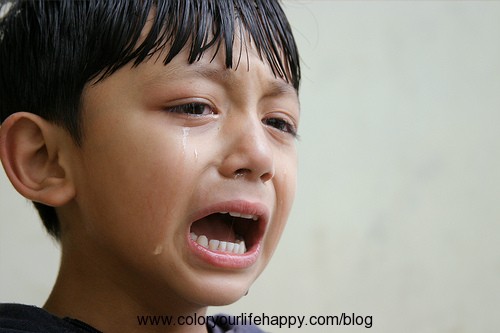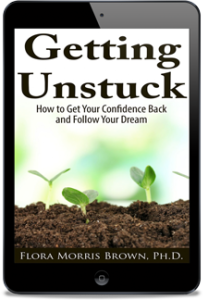When a national tragedy occurs such as the recent Boston Marathon Bombing and the Newton shootings before that, many of us are tearful, angry, confused and frightened. We struggle to cope with and quell our own anger as well as offer comfort to children and loved ones.
Twitter becomes key source of news and reactions to it
To learn of the senseless shootings, bombing and other tragedies is traumatic enough. Since the wide use of smartphone cameras and other recording devices, however, we not only witness the tragedies and reactions as they happen, but we get exposed to them over and over as they are replayed, and as they are analyzed and evaluated on Twitter.
Because of the marathon, Boston was already in the news on April 15th. When the bombings occurred,the Twitter mention of Boston increased 20,000% according to Mashable. This article points out that when something happens we hear about it perhaps first on Twitter.
Paul Sturdivant, senior executive editor of Publishing Executive magazine shares in his article, Twitter’s Self-Balancing Act Proves Its Value, the views of newsmakers in the publishing industry. While one points out that Twitter is the best and worst place to get our news, another decides that even though Twitter shows us the ugliness of the news, it should stay the way it is.
What do our reactions to these national tragedies tell us about ourselves?
- Newsers feel more comfortable by tweeting and retweeting everything they can learn about the incident. It gives them a sense of control in a situation where they have none.
- Extreme Newsers don’t create their own news but curate what others are reporting, similar to what I’m doing here.
- Carry-on-ers who keep tweeting their normal topics without mention of the incident.
- Backlashers go immediately into the blame game.
- Mourners express their sadness and leave words of compassionate.
Examine Christine’s full list to determine where the following tweets fit on her list. Then share in the Comments where you fall on her list.
Laina kaayo basahon ui.. “Doctors removed more than a dozen nails from one patient…” #BostonMarathonBombing #CNN
— Ferdinand Daga (@Kurokochan0713) April 17, 2013
Thoughts and prayers still with the #BostonMarathonBombing from yesterday. #unitedwestand
— Anna Yarbro (@annayarbro) April 17, 2013
Dedicating my 10K at #kansasrelays to everyone affected by #bostonmarathonbombing. I will run my heart out all 25 laps for these people.
— Andrea McKinney (@LilRedRunner) April 17, 2013
Make love not bombs. #bostonmarathonbombing instagram.com/p/YLcJcPkPs9/
— katie (@Saria_4partying) April 16, 2013
I can’t believe this – shocking #Explosions at the #BostonMarathon – The Atlantic Wire theatlanticwire.com/national/2013/…#BostonMarathonBombing
— SailorJones (@sailorjones) April 15, 2013
Whichever group you fall in, I expect that psychologists would say that it is healthy to speak about how you’re feeling. It seems offering words of comfort and aid are beneficial to the giver and recipient as well.
Lashing out with unsubstantiated blame or worse, offering violent solutions, seem less helpful and maybe even problemmatic.
We have expectations during these times
- We expect major companies, our leaders and news channels to pause to make comment and extend condolences to families and praise to first responders.
- Even though we know that Twitter is full of reports from common citizens, we put some trust in these witnesses on the scene who also provide visual and very graphic first images often before the professional news reporters can even get to the site. Even major news sources urge eyewitnesses to send their photos and accounts.
- We search for accounts of what police investigations have uncovered even when the first few minutes before we’re even clear about what has happened.
Do you follow breaking news on Twitter? Do you tweet your reactions to your friends? What do you think our reactions to these tragedies say about us? Share your thoughts in the Comments.




 Follow
Follow



Thanks for the mention, Flora. I love your site; it’s so helpful.
I agree that we should definitely share our feelings with friends. I worry, however, what a public account like Twitter could do to a reputation. If a job seeker, for example, is overly affected on social media sites, the employer may read that person as “slightly unstable.” Unfair as that may be, it’s the reality of what happens. So I try to keep people aware and careful. The use of lists and privacy levels is wise. Twitter doesn’t have that option, but Facebook does.
I’m sure a time will come when a public image of “being human” won’t hurt us in any way. We’re just not there yet.
Hi Christine,
It was a pleasure to discover your post and be able to feature it on my blog.
You’re so right that what we tweet or say on any social media has the potential
to come back to bite us. A number of job seekers have discovered the hard way
that companies assign certain employees to track their upcoming interviewees and
be alerted every time their company is mentioned.
For that reason we all need to be mindful about what we share anywhere on the
Internet. Even what seems harmless to us could be interpreted in a way we couldn’t
imagine.
I look forward to the day when we can be more “human” online without it being
twisted into something other than authenticity. You’re right, of course, that we’re
not there yet.
Thanks for making time to comment.